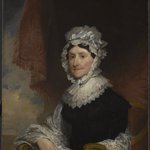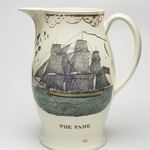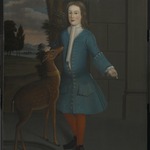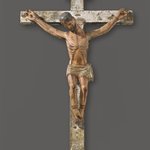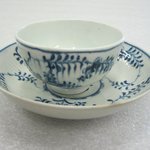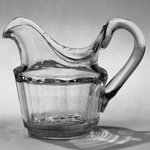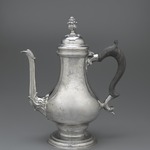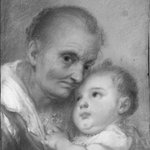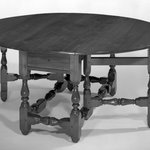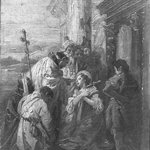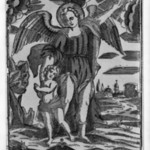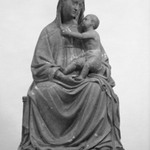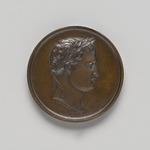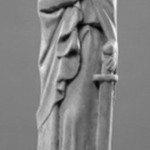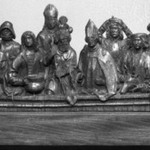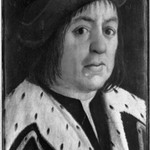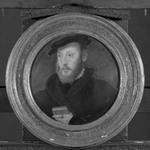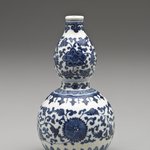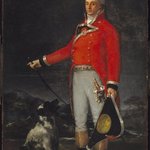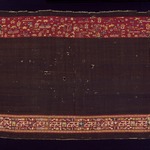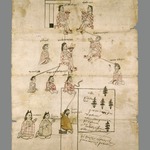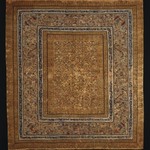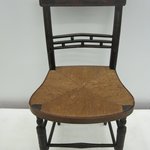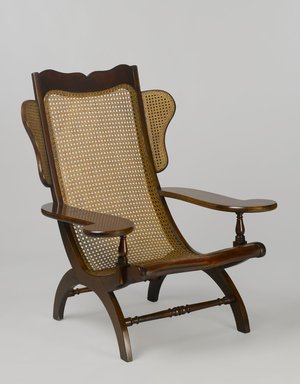
Easy Chair (Butaca)
Decorative Arts and Design
On View: Luce Visible Storage and Study Center, 5th Floor
Butacas, colonial low easy chairs derived from pre-Columbian seat forms (see illustration), were ideal for intimate domestic spaces. The elite eighteenth-century example here includes carved rocaille decoration—fanciful sinuous curves with origins in the irregular edges of shells and rock formations—and cabriole legs adorned with a dog’s head and a bird (possibly references to the owner’s pets or interest in animals). The later mahogany-and-cane Cuban butaca includes foreign elements such as wings and a top rail molding.
The butaca type spread throughout the Caribbean and key ports along the Gulf of Mexico, particularly after Charles III signed the 1778 decree of free trade, which allowed Spanish American ports to trade directly with one another and with most ports in Spain.
Las butacas, sillas coloniales bajas derivadas de los asientos precolombinos (ver ilustración), eran ideales para amoblar los espacios domésticos más íntimos. Este ejemplo de élite del siglo XVIII incluye una decoración tallada de rocallas—curvas caprichosas y sinuosas inspiradas en los bordes irregulares de las conchas y formaciones rocosas—y patas cabriolé adornadas, una con la cabeza de un perro y la otra con un pájaro (una posible referencia a los animales domésticos del propietario o a su interés en los mismos). La butaca cubana tardía de caoba y esterilla de mimbre incluye elementos ajenos al repertorio ornamental tradicional español, como las alas y la moldura superior.
Este tipo de butaca se extendió a todas partes del Caribe y a los principales puertos en el Golfo de México, en particular luego de que Carlos III firmara en 1778 el decreto de libre comercio, que permitió a puertos de Hispanoamérica comerciar directamente entre ellos y con la mayoría de los puertos de España.
The butaca type spread throughout the Caribbean and key ports along the Gulf of Mexico, particularly after Charles III signed the 1778 decree of free trade, which allowed Spanish American ports to trade directly with one another and with most ports in Spain.
Las butacas, sillas coloniales bajas derivadas de los asientos precolombinos (ver ilustración), eran ideales para amoblar los espacios domésticos más íntimos. Este ejemplo de élite del siglo XVIII incluye una decoración tallada de rocallas—curvas caprichosas y sinuosas inspiradas en los bordes irregulares de las conchas y formaciones rocosas—y patas cabriolé adornadas, una con la cabeza de un perro y la otra con un pájaro (una posible referencia a los animales domésticos del propietario o a su interés en los mismos). La butaca cubana tardía de caoba y esterilla de mimbre incluye elementos ajenos al repertorio ornamental tradicional español, como las alas y la moldura superior.
Este tipo de butaca se extendió a todas partes del Caribe y a los principales puertos en el Golfo de México, en particular luego de que Carlos III firmara en 1778 el decreto de libre comercio, que permitió a puertos de Hispanoamérica comerciar directamente entre ellos y con la mayoría de los puertos de España.
MAKER
Unknown
MEDIUM
Mahogany, cane
DATES
second quarter 19th century
DIMENSIONS
43 x 35 3/4 x 35 3/8 in. (109.2 x 90.8 x 89.9 cm) (show scale)



MARKINGS
Unmarked
COLLECTIONS
Decorative Arts and Design
ACCESSION NUMBER
2011.58.1
CREDIT LINE
Gift of Mrs. J. Fuller Feder, by exchange and Brooklyn Museum Collection
CATALOGUE DESCRIPTION
Mahogany and cane easy chair (Butaca) with curved, inverted 'U' shaped legs. Tall mahogany easy chair with continuous curved back and seat, curved and notched top crest rail, on each side at front upper corner of crest a mahogany and cane long ear- shaped wing. Slight incline to back curving down to a wide, ample seat with scalloped seat rail. At midpoint of back stiles on either side, a thick, horizontal armrest attached to seat base with an upright, short, turned support, legs consist of a continuous inverted 'U' shape on either side with a turned stretcher at rear and front. Old cane on side wings, new cane on main body.
MUSEUM LOCATION
This item is on view in Luce Visible Storage and Study Center, 5th Floor
CAPTION
Unknown. Easy Chair (Butaca), second quarter 19th century. Mahogany, cane, 43 x 35 3/4 x 35 3/8 in. (109.2 x 90.8 x 89.9 cm). Brooklyn Museum, Gift of Mrs. J. Fuller Feder, by exchange and Brooklyn Museum Collection, 2011.58.1. Creative Commons-BY (Photo: Brooklyn Museum, 2011.58.1_PS6.jpg)
IMAGE
overall, 2011.58.1_PS6.jpg. Brooklyn Museum photograph, 2013
"CUR" at the beginning of an image file name means that the image was created by a curatorial staff member. These study images may be digital point-and-shoot photographs, when we don\'t yet have high-quality studio photography, or they may be scans of older negatives, slides, or photographic prints, providing historical documentation of the object.
RIGHTS STATEMENT
Creative Commons-BY
You may download and use Brooklyn Museum images of this three-dimensional work in accordance with a Creative Commons license. Fair use, as understood under the United States Copyright Act, may also apply.
Please include caption information from this page and credit the Brooklyn Museum. If you need a high resolution file, please fill out our online application form (charges apply).
For further information about copyright, we recommend resources at the United States Library of Congress, Cornell University, Copyright and Cultural Institutions: Guidelines for U.S. Libraries, Archives, and Museums, and Copyright Watch.
For more information about the Museum's rights project, including how rights types are assigned, please see our blog posts on copyright.
If you have any information regarding this work and rights to it, please contact copyright@brooklynmuseum.org.
RECORD COMPLETENESS
Not every record you will find here is complete. More information is available for some works than for others, and some entries have been updated more recently. Records are frequently reviewed and revised, and we welcome any additional information you might have.
